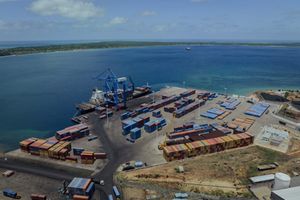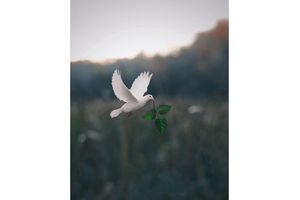
In 2016, Rwanda started using drones to deliver civilian products like blood and medical supplies to hospitals and remote health centres.
There are some things Kenya’s Ambassador to Belgium and the European Union Bitange Ndemo spoke about 10 years ago whose time has come, thanks to the recent floods that have battered East Africa.
The floods killed at least 290 people in Kenya and 155 in Tanzania. They also displaced about 410,350 people in East Africa with Kenya, Tanzania, Somalia, Uganda and Burundi the most affected. In Burundi, months of flooding drove crocodiles and hippos onto streets and roads, making the walk along village paths in the dark extremely dangerous.
On March 11, 2014, Dr Ndemo, who had been the principal secretary (PS) in the Ministry of Information and Communication under the former President Mwai Kibaki and had carved out a reputation as a tireless campaigner for digital enterprise and the internet, spoke at a colloquium at the Catholic University in Karen. The event, with the very serious theme “Africa in the New Era of Cognitive Computing”, was also a formal launch of IBM Research Africa’s lab in Nairobi.
Ndemo said that while some people might think drones are for advanced economies and technology markets, the greater opportunity for them lay in Kenya and other parts of Africa, where transport infrastructure was little developed or non-existent. Visionary as it was, a few people thought the PS, in a hurry to get to the conference, had missed his breakfast—or possibly forgotten to take his medicine—so he wasn’t thinking clearly and was saying wild things.
New economic opportunities
Ndemo said drones would create new economic opportunities and improve trade. He got me there. I remember thinking, then writing, that the cost of doing business would fall significantly. A drone flying from somewhere in Kisumu to Jinja in Uganda would no longer have to stop at half a dozen roadblocks to pay the police bribes, and it would have no driver who had to lose a day in a small town visiting his girlfriend.
Ndemo was not away with the fairies. The warriors, as often happens, were quicker to use the drones with African Union troops in Somalia (chaperoned by the US) deploying them against Al-Shabaab. However, three years after that speech, Zipline was launched in Rwanda, in 2016, and started using drones to deliver civilian products like blood and medical supplies to hospitals and remote health centres. By 2022 Zipline had made 450,000 deliveries. It has since expanded to food, retail, agriculture and animal health products. With the success in Rwanda, Zipline has since expanded to Ghana, Nigeria, Tanzania, Kenya and Cote d’Ivoire.
Small taste
The recent floods have inflicted significant damage on infrastructure, including roads and bridges. If this was only a small taste of how our climate change-troubled future is going to be, then the hard questions need to be asked: Should precious funds be spent fixing damaged roads and bridges when, in another year or so, they will be swept away on a larger scale? Or should they go into building elevated drone ports and transitioning to more appropriate technology for the period?
True, many communities will be cut off, but with drones, they can get the same level of service. Drones can do a good job as vehicles for East African cross-border trade as they can whizz to all manner of places with open fields and compounds, where aircraft can’t land because there are no airports or airfields. It would require the region to think bigger about the architecture of regional integration.
There is the small matter of how children will get to school and the faithful to churches and mosques. We would just become water people, and boats and canoes would be the new matatus. Many water cities in the world, like Hoi An in Vietnam and Malacca in Malaysia, do so much more than many cities and towns in Africa.
Political patronage
I also suspect living on water will get us to unlock more of our creativity as it is more challenging to survive. The easy age of seeds thrown at the back of the kitchen and a few months later you are harvesting beans and tomatoes will be over.
It could also be good for democracy. There will be less land to grab or allocate as political patronage. And fish is not something you promise casually at a rally. Somebody has to go out on the water with nets and catch them. Who knows, this very different form of political bargain might be why Africa’s islands like Mauritius, Cape Verde and Seychelles are, in the majority, more democratic and less corrupt than their continental mainland cousins.
Looking up at the skies, I think our climate change crisis also opens the doors wider on old opportunities on the ground. I see the arrival of a glorious new age for the humble donkey in local small trade, hauling loads down and up valleys where bridges have been washed away. It would be a charming return to the roots.
And, as a bonus, collectively, drones and donkeys would also have a low carbon footprint.
Mr Onyango-Obbo is a journalist, writer and curator of the “Wall of Great Africans”. @cobbo3





